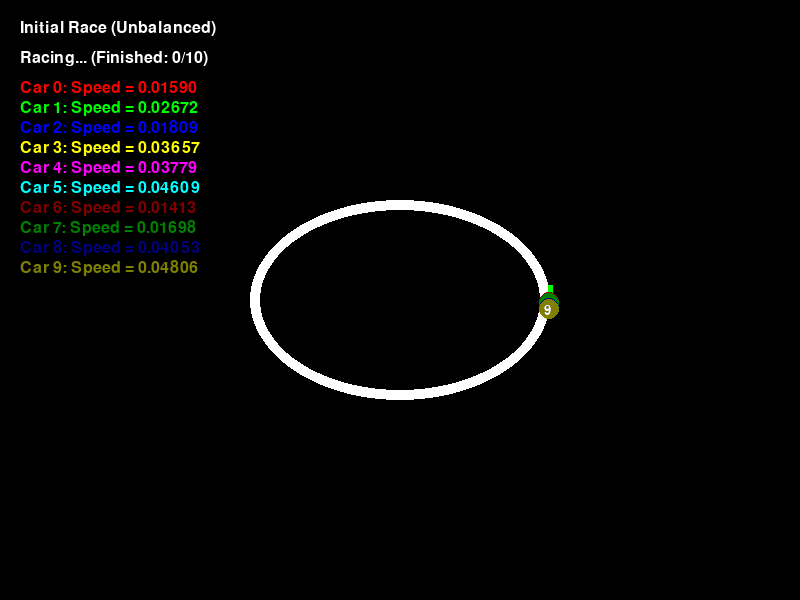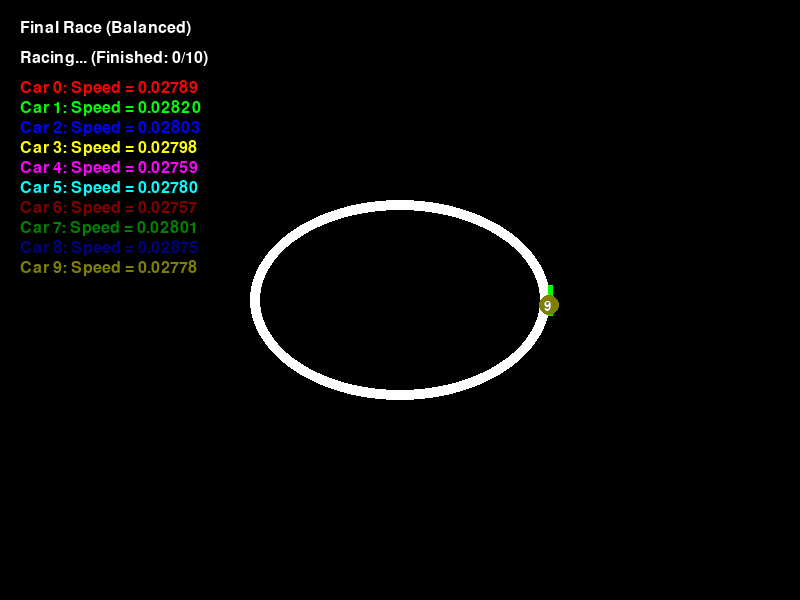Case Study: Video Game Balancing with XCS
Introduction to Learning Classifier Systems
Learning Classifier Systems (LCS) represent a unique intersection of machine learning, evolutionary computation, and rule-based systems that excel at reinforcement learning tasks. The XCS (eXtended Classifier System) variant, in particular, uses accuracy-based fitness to evolve rules that efficiently model complex environments. While traditional machine learning approaches often require massive datasets and computational resources, LCS offers a lightweight, interpretable alternative that learns continuously from environmental feedback. This is just a brief introduction to this fascinating technology—check out our Educational Series for a comprehensive deep dive into the mechanics and theoretical foundations of LCS.
Why LCS Is Perfect for Video Games
Learning Classifier Systems offer several compelling advantages for video game applications. First, their online reinforcement learning capability allows them to adapt in real-time without catastrophic forgetting—meaning they can continuously learn new patterns while retaining previously acquired knowledge. Second, LCS supports distributed learning architectures where multiple systems can share discovered rules, enabling a form of knowledge transfer between game entities. Third, their remarkably small model size makes them ideal for edge computing scenarios, such as mobile gaming or supporting numerous independent AI-driven NPCs simultaneously. Finally, the evolutionary nature of LCS creates dynamic, ever-evolving game environments that continually surprise and challenge players as the system adapts to their strategies.
Case Study: Auto-Balancing Racing Game with XCS
To demonstrate the power of this technology, we've implemented an XCS-based auto-balancing system in a simple racing game. In our simulation, ten cars race around an oval track, with the only differentiating factor being their speed. Unlike traditional batch learning approaches that collect data first and train models later, our XCS system performs online learning—adjusting car speeds between races based on real-time performance data. This mimics how a game would adapt to player behavior during actual gameplay rather than requiring predefined balance parameters.
Seeing Auto-Balance in Action
In the initial race, cars have randomly assigned speeds, creating an inherently unbalanced competition where faster cars consistently win. The disparity is clearly visible as cars spread out around the track, with some cars finishing well before others have completed their second lap.
After the XCS system has performed its balancing magic across hundreds of races, the second GIF showcases a dramatically more competitive environment. The cars now maintain much closer proximity throughout the race, creating genuinely suspenseful finishes where multiple cars have a realistic chance of winning.
How XCS Achieves Balance
What makes this approach particularly elegant is that the XCS system targets win rates, not speeds. It doesn't simply make all cars travel at the same speed—rather, it adjusts individual car speeds so that each competitor achieves a similar win rate over time. Cars that win too frequently receive speed penalties, while underperforming cars receive speed boosts. The system converges toward a state where all cars have approximately equal chances of winning, creating the perfect competitive balance.
Beyond Racing: Game-Wide Applications
This auto-balancing approach could transform numerous aspects of game design. Imagine a system that dynamically adjusts ability cooldowns, damage values, resource generation rates, or enemy spawn patterns. In competitive games, character class balance could evolve automatically based on win rates across different skill levels. In looter-shooters, drop rates could adjust to maintain the optimal reward curve as the player base evolves its strategies.
Saving Time and Money in Game Development
For game developers and publishers, LCS-powered auto-balancing represents a significant opportunity to reduce development costs and accelerate time-to-market. Traditional game balancing requires extensive play-testing and multiple balance patches, often extending months after release. With an LCS system handling balance adjustments, developers could release new characters, items, or mechanics with confidence that the system will automatically fine-tune parameters as players interact with the content. This could dramatically reduce the pre-release testing burden and minimize the need for emergency patches to address balance issues discovered after launch.
Expanding the Possibilities
Beyond simple parameter balancing, LCS could drive entirely new types of gaming experiences. Imagine adaptive environments that evolve based on player behavior, or world bosses in MMOs that develop counter-strategies to community tactics. The "meta game"—the dominant strategies that emerge in competitive play—would constantly shift as the LCS systems learn and adapt, keeping gameplay fresh and preventing stagnation around a single optimal approach.
Real-World Applications
The potential applications span virtually every game genre:
In a life simulator like The Sims, each character could have its own independent AI model making truly unique decisions without significant computational overhead.
Soulslike games could feature bosses that adapt to player strategies in real-time during fights, countering repetitive tactics and forcing innovation.
A game like Helldivers 2 could dynamically adjust enemy spawn compositions based on loadout popularity, ensuring players can't rely indefinitely on a single optimal strategy.
MMORPGs like World of Warcraft could implement raid bosses that subtly adapt week-to-week based on successful player strategies, ensuring encounters remain challenging without requiring complete redesigns.
A reimagined Spore could implement genuine evolutionary algorithms driving creature development, where traits evolve based on actual adaptation rather than predetermined paths.
Conclusion
Learning Classifier Systems represent an exciting frontier for game development, offering intelligent adaptation with minimal computational overhead. As players increasingly demand games that respond meaningfully to their actions, LCS provides a powerful framework for creating truly dynamic, evolving experiences that remain fresh and challenging over time.
Our racing demo showcases just one simple application of this technology—imagine what's possible when applied to the full complexity of modern game design. The future of game balance isn't in painstaking manual adjustments or one-size-fits-all parameters, but in intelligent systems that learn, adapt, and evolve alongside the player community.




